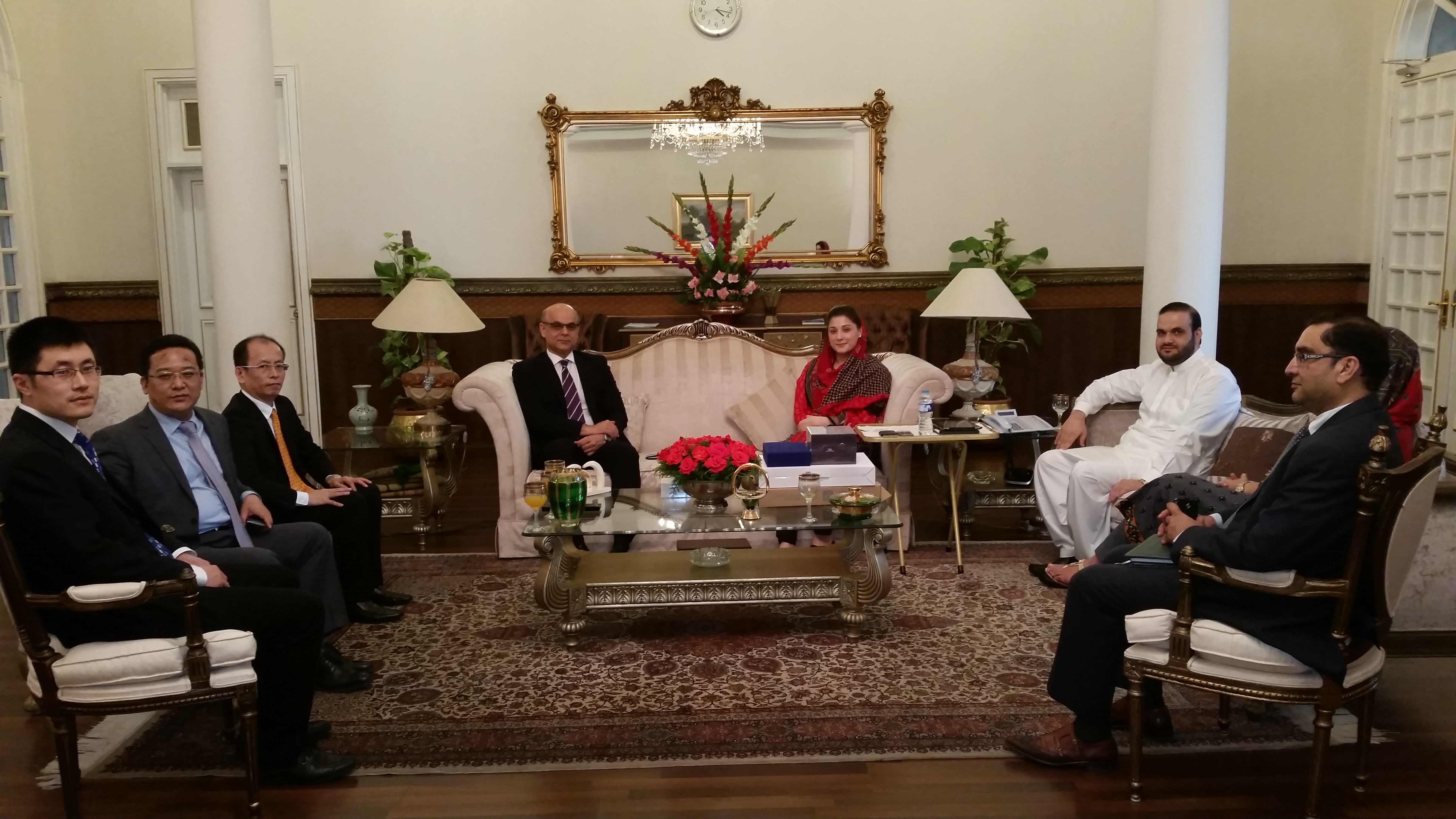ISLAMABAD ( ABRAR MUSTAFA )
Madam Maryam Nawaz Sharif, Chairperson Prime Minister’s Youth Programme held a meeting here at the Prime Minister’s House with a delegation of Haier Pakistan, comprising Mr. Khalid Afridi COO Haier Pakistan, Mr. Tristan Wong, GM Haier Computers, along with MD PTV. During the meeting, Madam Maryam Nawaz Sharif directed the visiting delegates from Haier Pakistan to install local Laptop Assembly Plant in Pakistan, in order to cater to the development vision of Prime Minister, Muhammad Nawaz Sharif under Prime Minister’s Youth Programme. She highlighted that the local assembly of the IT equipment and laptops would play a key role in the development and use of ICT in education, research and human and social development of the country.
A salient feature of the Laptop Scheme launched under Prime Minister’s Youth Programme is the local assembly of laptops, in addition to appropriate space allocation for setting up the Assembly line at Haier Pakistan premises in the outskirts of Lahore.
The laptop product coming out of the local assembly line will have label saying “Assembled in Pakistan”, whereas the same Haier model which is currently imported will be produced locally having same quality standards. The local assembly though is of small number but this would certainly act as a seed initiative for the IT manufacturing industry. The contract signing ceremony for supply and commissioning of 100,000 laptops was held at HEC Secretariat, Islamabad on Monday, wherein HEC and M/s HAIER China signed the contract.
It is expected that the Government’s intent to continue this project for next four years as per the original plan would help achieving the overall objectives and larger benefit of the nation. For this purpose, a summary has already been forwarded to the Prime Minister through the Chairperson, Prime Minister’s Youth Programme.
Though the concept is approved in principle, however once the project for next four years is approved, the project will open up a new avenue towards full-fledged local assembling of IT equipment and flourish IT industry at large, but also have significant economic impact.
Local assembling, which is expected to expand towards manufacturing, will contribute towards GDP and the re-export of the IT equipment out of Pakistan would bring significant economic impact as well as convey soft image of Pakistan internationally through a product labeled as “Made in Pakistan”.
In the long-run, the overall per unit cost of laptops is expected to decrease substantially and so will help leveraging ICT for socio-economic development of Pakistan. Local assembly line will help in knowledge and technology transfer; job creations; manufacturing of some components locally; or may be Silicon Industry in Pakistan someday.

